Because Your Budget Should Have Plenty of Room for College Snack Boxes
Is your college student counting down the days for the first day of university classes this fall? Are they ready to learn their favorite subjects, either online or in person? By now, you know it’s nearly time for your student to receive their textbook lists for their courses, and you’re either about to foot a huge bill for books they’ll use for a few months, or they’re going to add those major expenses to their student loan balance.
Although our expertise is more focused on college student care packages, we can actually offer you some great advice on saving money on textbooks — and you don’t find these deals at the campus bookstore. Here are five ways you can save serious money on this year’s textbooks.
Purchase Used College Textbooks from a Third-Party Site
Teenagers and young adults are great at online shopping; it’s been a common method of shopping for their entire lives. Some of the best deals can be found online, including for college textbooks. Websites that sell used textbooks from third parties, such as Amazon or Abe Books, often offer the deepest discounts. Your student can run a search for reputable sources for cheap textbooks to find where they can get the best deals. Because these books are used only temporarily, they can save even more money by choosing copies in “acceptable” or “fair” condition. As long as all the pages are there and readable, it makes for a perfectly good textbook.
Buy a Previous Edition
College professors are notorious for requiring the latest edition of books, which are always the most expensive. If page numbers in textbooks aren’t vitally important, and the previous edition was fairly recent, you can sometimes get by with using an older version of the textbook. Because the newer edition was released, the previous editions are rendered obsolete and can be purchased online for a fraction of the price of a used textbook. Although your student won’t be able to resell this past edition to the campus bookstore at the end of the semester, you didn’t spend much on it in the first place, so there’s no real financial loss.
Rent Textbooks
Textbook rentals can save a significant amount of money, especially for the most expensive textbooks (think science and math courses). Students who rent textbooks borrow them for the semester and are required to return them in good condition when their courses conclude. Because they don’t own the textbooks, the rental fee is generally much less than the purchase cost.
Download the Electronic Version
E-books can also be a money-saving option, especially for students with e-readers. E-books tend to be cheaper than physical textbooks and work just as well for tech-savvy college kids. They also don’t take up valuable space in a cramped dorm room, nor do they weigh down a backpack as your student treks across campus. The downside is the lack of a physical copy your student can highlight or handwrite notes in; if your child learns best that way, an e-book may not be the best option.
Share Textbooks with a Classmate
Although it’s not always ideal when it comes to independent studying, your college student can save money by splitting the cost of the most expensive textbooks with a classmate. They then will have to be responsible for passing the book back and forth at scheduled times to be respectful of each others’ educational needs. When you can’t find a book for cheap, this is sometimes the best option.
Put Leftover Textbook Money Toward College Snack Boxes!
Once your student has obtained their textbooks, the next step to set them up for success is to keep them well-fed. Send your favorite university student a monthly college snack box, full of sweet and savory treats, school supplies, and other surprises. We make it easy to maintain their snack stockpile — all you have to do is place the order one time.
Learn more about our college snack box subscription service.



